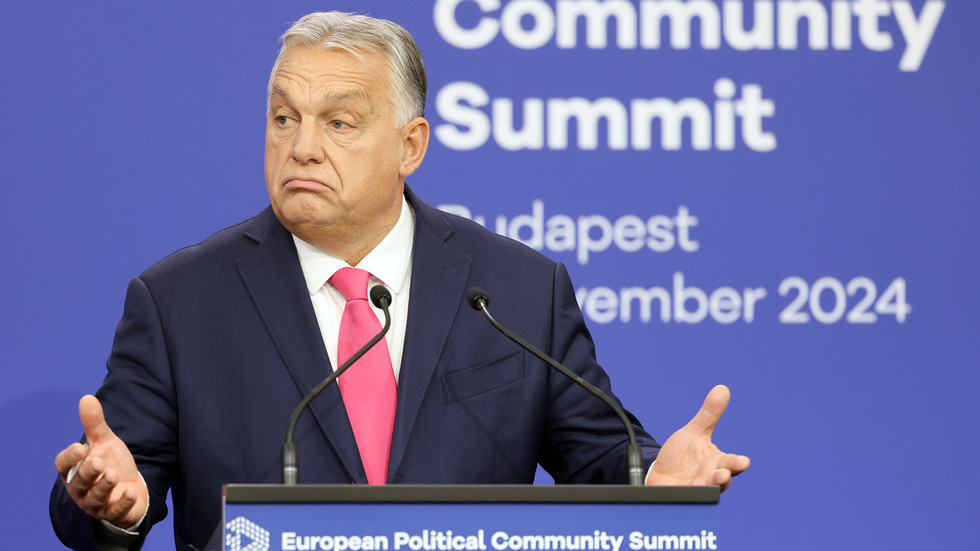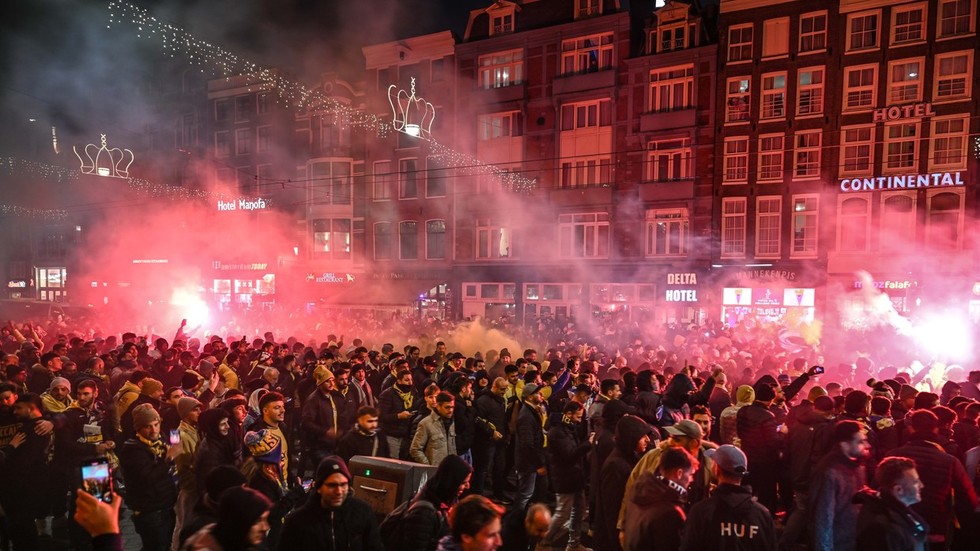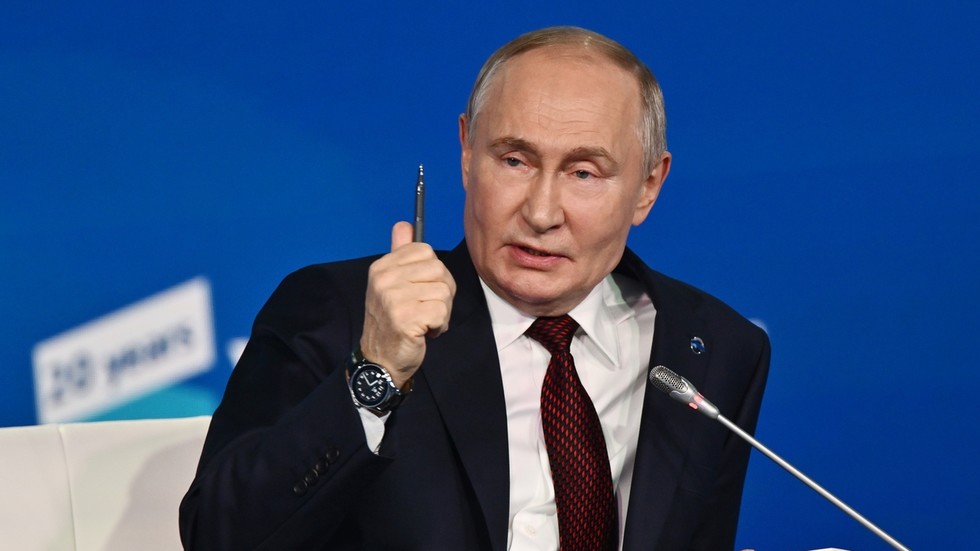North Korean troops are said to have clashed with Ukrainian forces in the Russian region of Kursk for the first time on Tuesday, the same day American voters re-elected Donald Trump for president, an isolationist who has argued against sending further military aid to Ukraine.
“The first battles with North Korean soldiers open a new page of instability in the world,” said Ukrainian President Volodymyr Zelenskyy in his evening address. “We must do everything to make this Russian step to expand the war – to really escalate it – to make this step a failure.”
Ukrainian Defence Minister Rustem Umerov said the clashes were “small scale” and that the North Korean troops were not fighting as separate formations but were embedded in Russian units disguised as Buryats from the Russian Federation.
On Saturday, Ukraine’s military intelligence (GUR) had said Russia transferred more than 7,000 North Korean military personnel “to areas near Ukraine” in the last week of October – a much higher figure than the 3,000 North Korean soldiers South Korean and United States intelligence had said were in Russia’s Kursk region on October 30.
GUR said Russia had transported the troops on 28 Russian aircraft and armed them with Russian mortars, assault rifles and machineguns.
Russia had committed 45,000 personnel to ejecting Ukrainian forces from Kursk and was trying to increase their numbers, Ukrainian commander-in-chief Oleksandr Syrskii said on social media.
“There are not enough Russian troops in this direction, so they are trying to attract military from North Korea there,” he wrote.
Russian forces had suffered high casualty rates in Kursk of almost 21,000 soldiers, including just under 8,000 killed, Syrskii said.
Neither Moscow nor Pyongyang have acknowledged the reports of North Korean troops fighting alongside Russians.
John Kirby, Washington’s national security spokesman, has said that if North Korean troops do engage in combat, they’re “fair game” for Ukrainian forces. US President Joe Biden told reporters Ukraine could shoot North Koreans if they entered Ukrainian territory.
 (Al Jazeera)
(Al Jazeera)Ukraine launched a counter-invasion of Russian territory three months ago as an active defence because it had received intelligence that Moscow’s forces were about to invade the adjacent Sumy region.
On Friday, Zelenskyy said in his evening address that he could strike Ukraine’s alleged new enemies pre-emptively, but allies weren’t allowing him to do so.
“Now, we see every site where Russia is accumulating these North Korean soldiers on its territory – all their camps. We could strike preventively if we had the capability to hit with sufficient range. And it depends on our partners. Yet instead of providing the much-needed long-range capabilities, America is watching, Britain is watching, Germany is watching. Everyone is just waiting for the North Korean military to start targeting Ukrainians.”
North Korea appeared emboldened by its new strategic partnership with Moscow, launching a new Intercontinental Ballistic Missile (ICBM) last week that logged the longest flight time yet for a North Korean missile.
Last summer, Russia and North Korea signed a strategic agreement that they said included a mutual defence clause.
Pyongyang’s interest in putting troops on the ground against Ukraine stems from its desire to learn up-to-date military methods, said the Institute for the Study of War, a Washington-based think tank.
“North Korea’s military has not experienced large-scale conventional combat since 1953 and understands that its doctrine is unprepared to fight in a modern war, especially against a sophisticated adversary such as South Korea,” the ISW said.
 (Al Jazeera)
(Al Jazeera)That risked increasing North Korea’s freedom of movement and its ability to destabilise the Asia Pacific region.
“North Korea may be using its increasing alignment with Russia to reduce its reliance on the People’s Republic of China (PRC), therefore reducing Beijing’s leverage over the North Korean regime,” said the ISW.
“A reduction of PRC leverage over North Korea will likely reduce the stability of the Korean Peninsula and endanger the broader Asia-Pacific region, because the PRC uses its leverage to restrain North Korea’s aggression.”
Trump’s re-election
On Wednesday, Zelenskyy was one of the first European leaders to congratulate Trump on his election victory.
“We count on further strong bipartisan support for Ukraine in the United States,” he wrote on X, formerly Twitter.
US support could fall in a second Trump presidency.
Trump last year urged congressional Republicans to vote against a $61.4bn military aid package for Ukraine, delaying it by six months.
On the campaign trail, he claimed he would end the Ukraine war “in a day” if he won.
“I, as your next president of the United States, will bring peace to the world and end the war … Both sides will be able to come together and negotiate a deal,” he wrote on his social media network, Truth Social, in July.
 (Al Jazeera)
(Al Jazeera)As recently as last week, Trump told a podcast that Zelenskyy “should never have let that war start” because “that war’s a loser”.
But on the eve of the election, Trump also seemed to take a belligerent stance towards Moscow, despite frequently expressing admiration for Russian President Vladimir Putin.
In an interview with The Wall Street Journal on October 18, Trump said he told Putin, “Vladimir, if you go after Ukraine, I am going to hit you so hard, you’re not even going to believe it. I’m going to hit you right in the middle of fricking Moscow … We’re friends. I don’t want to do it, but I have no choice.”
The war in the air
Ukraine and Russia have intensified their aerial combat as well as their ground operations.
Ukraine’s general staff said last week that Russian drone use was increasing.
Out of 6,987 Shahed drones used this year, 2,023 had been used in October alone.
“Of these, 1,185 were destroyed or suppressed by Ukrainian defenders, 738 units were lost in location, and another 29 UAVs left the controlled airspace of our country.”
The “lost” drones were likely disoriented by Ukrainian defensive electronic warfare.
 (Al Jazeera)
(Al Jazeera)Last week Ukraine endured nonstop drone attacks every night, including against residential areas.
On Friday night Ukraine shot down 39 UAVs and downed another 21 through jamming, out of 71 launched.
The following night it downed 66 out of 96 UAVs.
Overnight on Sunday, it shot down 50 of 80 Shahed drones and a second unidentified type of drone, its air force said.
Overnight on Wednesday Ukraine shot down 38 drones and disoriented 20.
Ukraine has responded with long-range attacks on Russian infrastructure using drones it manufactured itself.
Video emerged on Wednesday showing a Ukrainian drone hitting the Russian port of Kaspiysk on the Caspian Sea. On Friday a Ukrainian drone hit a tank farm in Stavropol. Evidence also emerged on Saturday that Ukrainian drones had hit seven Russian radar and air defence systems in the last 10 days of October.
 (Al Jazeera)
(Al Jazeera)
 2 hours ago
3
2 hours ago
3









